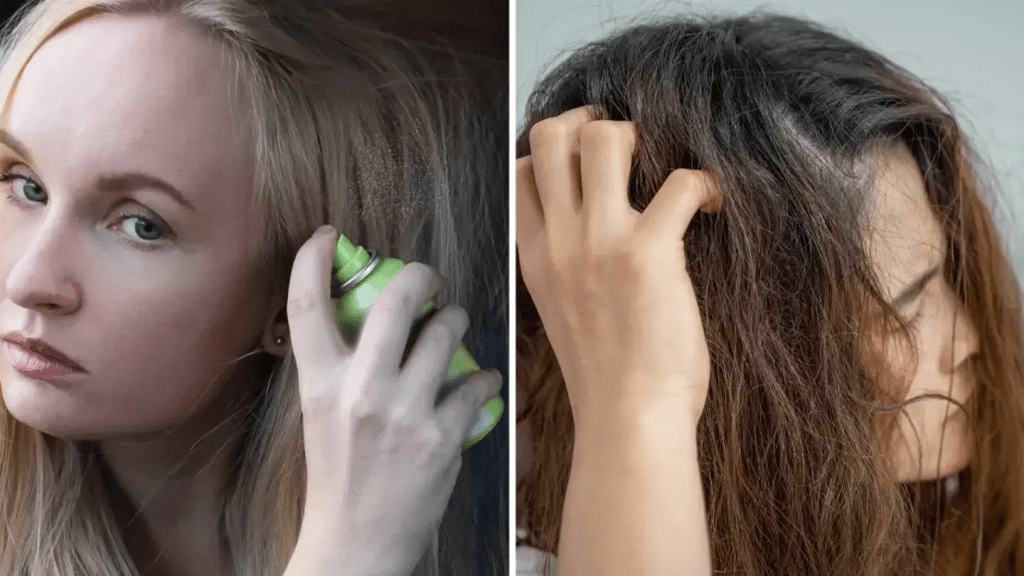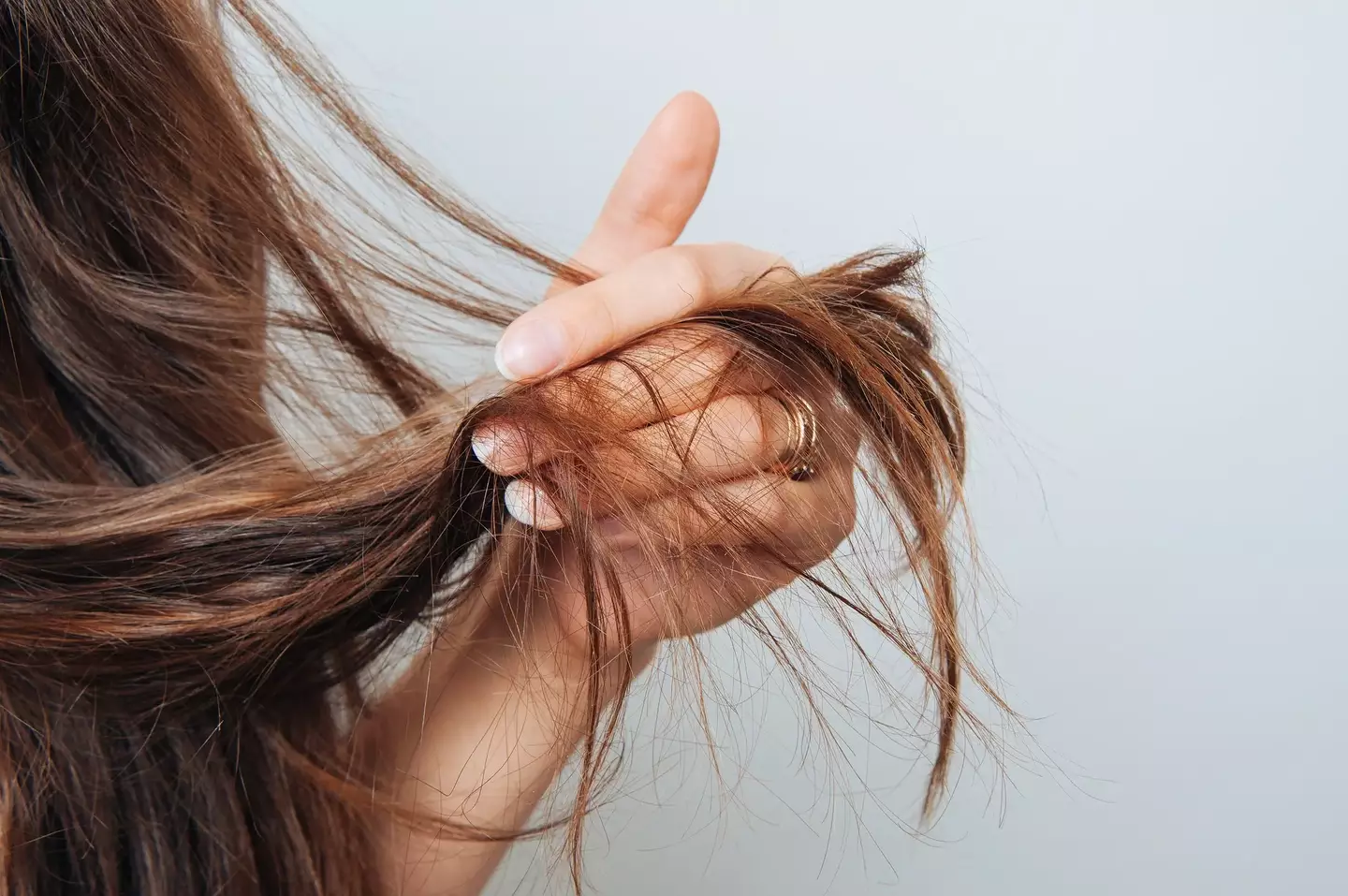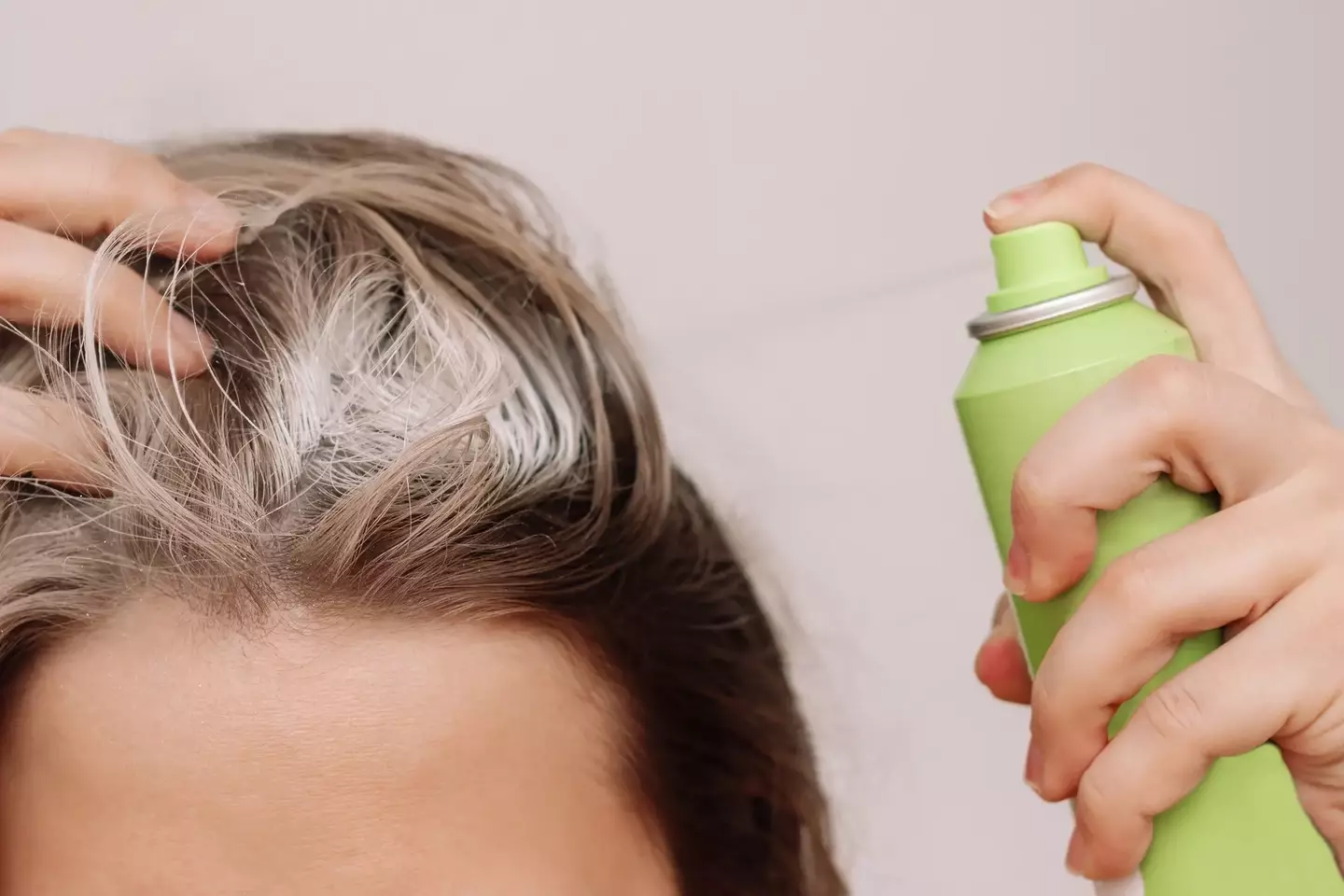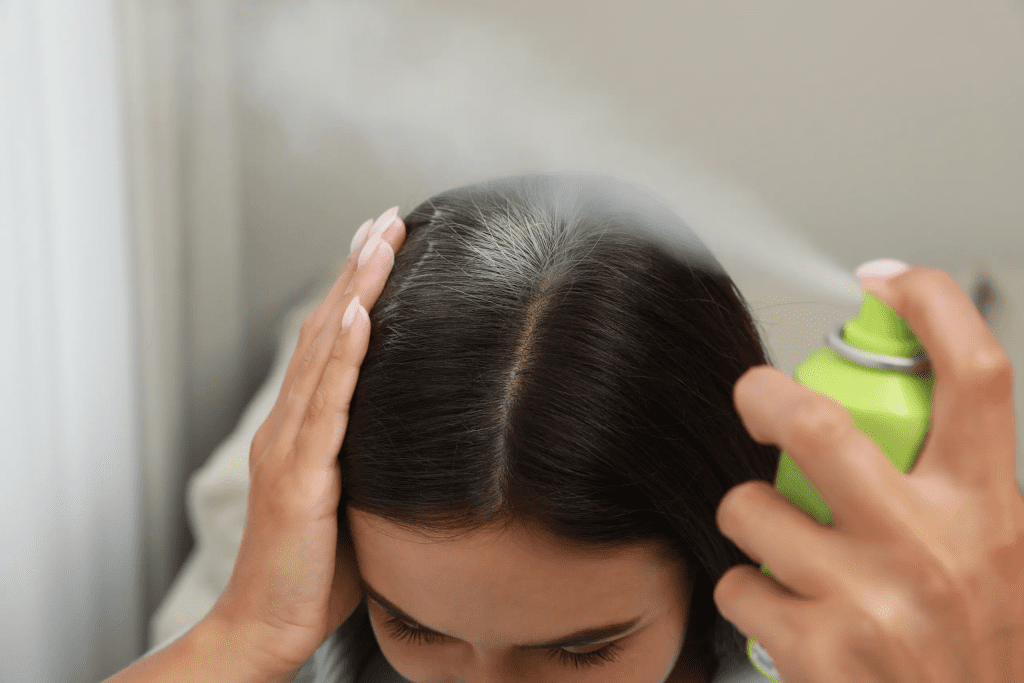Dry shampoo has long been hailed as a quick fix for greasy hair, especially for those busy days when washing and styling just aren’t in the cards. But recently, a serious reality check has emerged, and it may have you thinking twice before reaching for that canister. While dry shampoo offers a fast way to freshen up your hair, it’s becoming clear that its convenience comes at a significant cost to your scalp health. Here’s why you should be careful when using dry shampoo and consider alternatives for keeping your hair fresh.
What is Dry Shampoo, and How Does it Work?

Dry shampoo, as its name suggests, is a waterless solution designed to refresh your hair without the need for washing. It typically comes in an aerosol spray or powder form and works by absorbing excess oil and grease from your hair and scalp. The active ingredients in most dry shampoos are starch and alcohol, which effectively soak up the oil but leave behind a residue that makes your hair appear cleaner.
Sounds simple, right? But there’s a catch. While it does the job of making your hair look less oily, dry shampoo doesn’t actually clean your hair. In fact, it might be doing more harm than good in the long run. Let’s dive deeper into the risks associated with its frequent use.
Why Dry Shampoo Doesn’t Actually Clean Your Hair
The first red flag when it comes to dry shampoo is that, despite its name, it doesn’t clean your hair. According to science writer Rebecca Joy Stanborough, MFA, dry shampoo lacks the essential ingredients found in traditional shampoo, which is designed to remove dirt, grime, and buildup from your hair. Instead, dry shampoo merely absorbs oil and adds fragrance, but it doesn’t address any of the impurities that can accumulate on your scalp.
When used frequently, the build-up of these impurities can clog hair follicles, leading to a variety of scalp issues. So, while dry shampoo might make your hair appear cleaner, it’s not actually doing any of the cleaning work, and the residue it leaves behind can cause long-term problems.
Dry Shampoo Can Damage Your Hair and Scalp
While the idea of skipping a full wash may sound appealing, the truth is that overusing dry shampoo can lead to several scalp and hair problems. Here are just a few of the potential risks:
1. Dryness and Breakage: The alcohol in dry shampoo, a key ingredient in many products, can cause your hair to dry out over time. When hair becomes excessively dry, the fibers can weaken and crack, leading to breakage. Regular use of dry shampoo can leave your locks looking brittle and unhealthy, especially if you already struggle with dryness or split ends.
2. Clogged Hair Follicles: Dry shampoo can build up on your scalp, clogging hair follicles and disrupting healthy hair growth. This blockage can lead to scalp conditions like dandruff, folliculitis (a bacterial or fungal infection), and seborrheic dermatitis—a painful and red skin condition. These problems can become chronic if dry shampoo is used too often, leaving you with more serious issues than just greasy hair.

3. Itchy, Irritated Scalp: If you use dry shampoo regularly, you may begin to notice an itchy scalp. This is often due to the residue left behind, which can irritate the skin and lead to discomfort. If the build-up is left unchecked, it can even cause scalp inflammation, making your hair care routine a lot more challenging than simply washing your hair in the first place.
The Link Between Dry Shampoo and Cancer Risks
Here’s where things get really concerning: Some dry shampoo brands include talc in their formulas. Talc, when it hasn’t been processed properly, can contain asbestos—a known carcinogen. Although many modern brands have removed asbestos from their talc, the debate over whether talc itself is safe still continues. There is even some evidence suggesting a potential link between talc (even asbestos-free) and ovarian cancer, though the research is still limited.
The American Cancer Institute has advised avoiding products with talc, especially those that are applied to areas with sensitive skin. If you’re using a dry shampoo that contains talc, you may want to reconsider, as the long-term health implications are still not fully understood.
The Hidden Dangers of Overusing Dry Shampoo

While it’s okay to use dry shampoo in a pinch—say, before a big event or when you’re pressed for time—it’s important not to make it a daily habit. Overuse of dry shampoo can lead to a host of issues, including:
- Dry and brittle hair
- Scalp irritation and itching
- Clogged hair follicles
- Increased risk of infections
- Potential links to more serious health issues like cancer
When you start to rely on dry shampoo too often, you’re likely to experience a buildup of the very things you’re trying to avoid—grease, grime, and unhealthy residues. Instead of reaching for the canister every morning, consider returning to the basics of a good hair care routine.
Alternatives to Dry Shampoo for Fresh Hair
If you want to keep your hair feeling fresh without the risks associated with dry shampoo, here are a few healthier alternatives:
1. Regular Washing with a Gentle Shampoo: The best way to keep your hair truly clean is to wash it regularly with a good-quality shampoo. Choose a sulfate-free shampoo that cleanses your hair without stripping away its natural oils. You don’t need to wash your hair every day, but washing it a few times a week can help prevent build-up and maintain scalp health.

2. Natural Dry Shampoo Alternatives: If you need a quick refresher between washes, consider using natural alternatives like cornstarch, arrowroot powder, or even baking soda. These ingredients can absorb oil just like traditional dry shampoo, without the added chemicals or harmful ingredients. Simply apply a small amount to your scalp and brush it through to absorb excess oil.
3. Scalp Massages and Exfoliation: Incorporating a scalp massage into your routine can help stimulate blood flow to your hair follicles and keep your scalp healthy. You can even use a scalp exfoliator to remove dead skin cells and prevent build-up. This can help reduce the need for dry shampoo by keeping your scalp clean and fresh.
Conclusion: Is Dry Shampoo Worth the Risk?
While dry shampoo may seem like a miracle product, it’s becoming clear that the risks far outweigh the benefits—especially when used frequently. From scalp issues and hair damage to potential links to cancer, this quick-fix solution is not as harmless as it seems. If you want to keep your hair healthy and your scalp free from irritation, consider reducing your reliance on dry shampoo and opting for more natural alternatives. Your hair—and your health—will thank you.


